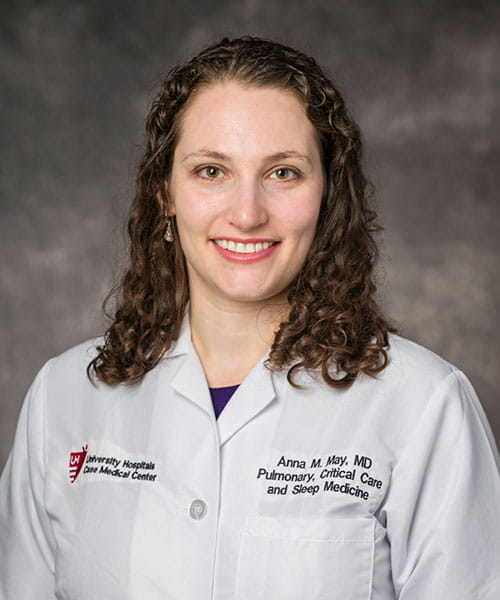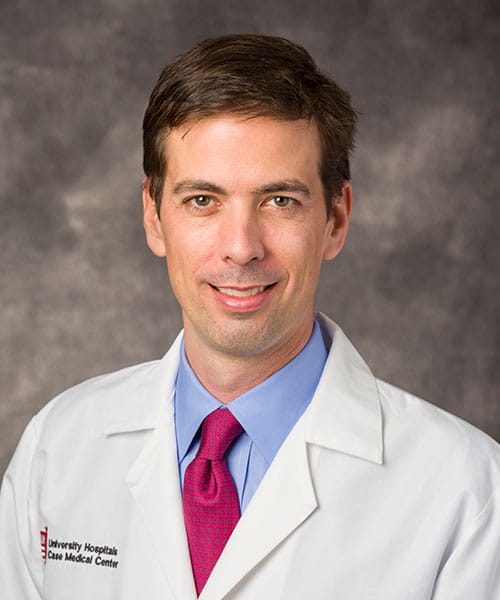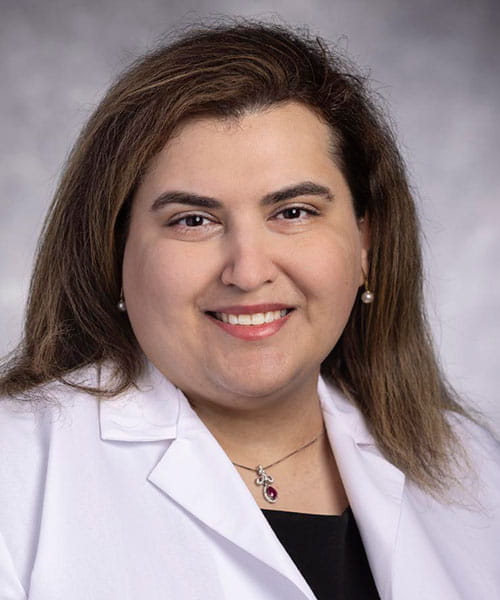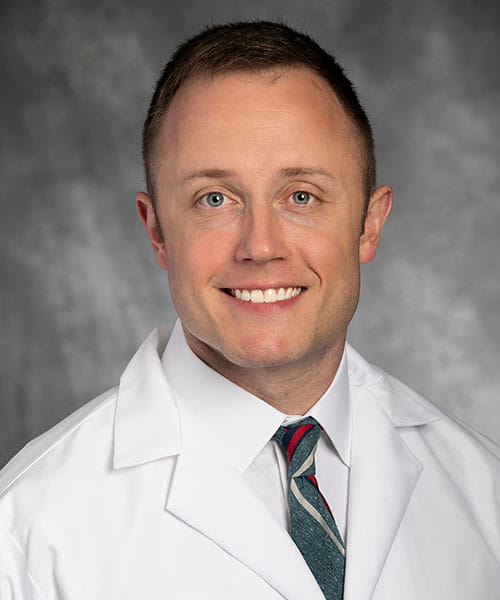University Hospitals Health Services Research Center Awards Six Intramural Research Grants in 2025 to Accelerate the Development of Promising Scientific Endeavors
September 01, 2025
UH Research & Education Update
The University Hospitals Health Services Research Center (HSRC) proudly announces that six investigators have been awarded a 2025 Intramural Research Grant of $50,000 each to advance new health services research projects across a range of clinical areas, with the potential to receive a 12-month renewal based on progress.
“We were truly impressed with the scope and caliber of scientific proposals submitted for consideration, which exemplified the vast scientific capacity and innovative vision housed within UH across numerous specialties,” says Samudragupta Bora, PhD, Founding Director of UH HSRC. “The newly funded research will serve as a platform for continued discovery and innovation, to ensure UH remains at the forefront of healthcare, not just in Northeast Ohio, but well beyond.”
The Intramural Research Grant program aims to support high-impact projects that will generate preliminary data for investigators to apply for competitive extramural funding.
Cultivating Research in the Fast-Growing Field of Health Services Research
Health services research examines individual and population health through a multidisciplinary scientific lens to better understand the mechanisms and processes that optimize healthcare quality, safety and value. In this rapidly growing and dynamic field, research projects focus on how social factors, financing systems, organizational structures and processes, health technologies and personal behaviors impact access to healthcare, the quality and cost, and, ultimately, health and well-being.
The total of $300,000, coupled with complimentary faculty-level biostatistical support, invested in the 2025 Intramural Research Grant awardees, underscores the unwavering commitment to discovery and innovation fostered throughout UH, fueling the continued delivery of state-of-the-art care and the best possible clinical outcomes.
The UH HSRC invited researchers throughout UH to submit proposals for new health services research Intramural Research Grant, with the intent of awarding up to four grants. Given the exceptional quality of the proposals submitted, the six-member review committee decided to award two additional grants. The six 2025 awardees, ultimately selected from among a record number of proposals, were notable for their scientific ingenuity and potential clinical impact.
After a rigorous two-stage peer-review process, the six meritorious proposals identified for support included the following projects:

Factors Affecting Referral for Noninvasive Ventilation in Stable Hypercapnic Chronic Obstructive Pulmonary Disease
Principal Investigator: Anna May, MD, MS, Department of Medicine
Chronic Obstructive Pulmonary Disease (COPD) is a leading global cause of death. Non-invasive ventilation (NIV)—a type of breathing support that uses a mask to help move air in and out of the lungs — can help patients who have too much carbon dioxide in their blood, and it’s been shown to improve survival and reduce the need for hospital visits. Despite clear guidelines, many eligible patients, particularly those from underserved populations, are not referred for NIV. This study is using electronic health data to identify which patients are being overlooked and why by examining how race, sex, socioeconomic status, and individual health conditions influence referral decisions. Additionally, we will evaluate the effectiveness of a common blood test in screening patients. The overall research goal is to improve healthcare equity, reduce hospital visits, and guide the development of future tools to ensure NIV is available to all patients who are eligible to receive the therapy.

Wearable-Derived Phenotyping of Functional Recovery After Lung Cancer Surgery: Toward Scalable, Patient-Centered Metrics of Surgical Quality
Principal Investigator: Christopher Towe, MD, Department of Surgery
After lung cancer surgery, some patients bounce back quickly, while others face months of limited activity and independence. Unfortunately, current hospital metrics do not tell clinicians much about recovery from the patient’s perspective. This project will use wearable devices to continuously track recovery and identify different patterns of healing in lung cancer surgery patients. The overall goal is to create a new framework that helps clinicians recognize when recovery is off track and enables earlier intervention to get patients back on their feet.

Contrast-Enhanced Photon-Counting CT Versus MRI for Locoregional Staging of Breast Cancer: Comparison of Diagnostic Accuracy, Quantitative Biomarkers and Patient Experience
Principal Investigator: Faezeh Sodagari, MD, Department of Radiology
This project will assess whether photon-counting CT (PCCT), a new CT technology that counts individual X-ray photons and sorts them by energy, can be as accurate as breast MRI in assessing tumor size, lymph node involvement and chest wall invasion in patients with breast cancer. If successful, PCCT could offer a faster, more comfortable option, especially for those unable to undergo MRI, while combining local and systemic staging into a single fast exam.

CARE-REP: Comprehensive Adolescent Reproductive Health Enhancement in Psychiatry
Principal Investigator: Kevin Makino, MD, PhD, Department of Psychiatry
Adolescents with mental health conditions often miss out on important medical care, especially services pertaining to the prevention of sexually transmitted infections or unintended pregnancies. Visits with child and adolescent psychiatrists provide a unique opportunity to address these needs. This project will involve providers, teens and caregivers to identify which reproductive health services are best suited for psychiatric clinics and how to offer them, laying the groundwork for the development of practical tools to improve adolescent health.

E-Cigarette Use and Young-onset Lung Cancer: A Pilot Hospital-Based Case-Control Study
Principal Investigator: Qian Wang, MD, MPH, UH Seidman Cancer Center
Lung cancer in adults aged 55 or younger is not well understood, though it might be linked to risk factors outside of traditional smoking, including electronic cigarette use. This project will examine how young lung cancer patients use e-cigarettes, examining the type of device used, frequency, and flavorings, among other factors, and comparing these patterns to those of individuals without lung cancer. This project will also explore differences in tumor characteristics among users of e-cigarettes, traditional cigarettes or both. The overall goal is to better understand whether and how e-cigarette use may contribute to lung cancer in younger people, providing insights to guide future research and prevention strategies.

Implementation Pilot of Proactive Holistic Support to Optimize Multimodal Treatment Completion in Gastrointestinal Cancer
Principal Investigator: Richard Hoehn, MD, Department of Surgery
Patients with complex gastrointestinal cancers often face long, difficult treatment journeys that include surgery, chemotherapy and radiation. Unfortunately, those with fewer financial or social resources are less likely to complete treatment, leading to worse outcomes. This project will pilot the “CARES Team” (Cancer Access, Resources, Engagement, and Support), a new support system that brings together social workers, financial counselors, navigators and other experts to help patients overcome nonmedical barriers like transportation, housing instability or health literacy. By identifying and resolving these issues early and proactively, the CARES Team aims to improve treatment completion and reduce emergency care. This project will help refine the program and prepare for a larger clinical trial to evaluate its long-term impact.
Across UH, medical research has proliferated exponentially in recent years, particularly in the realm of health services research, which facilitates the translation of research into patient care settings.


